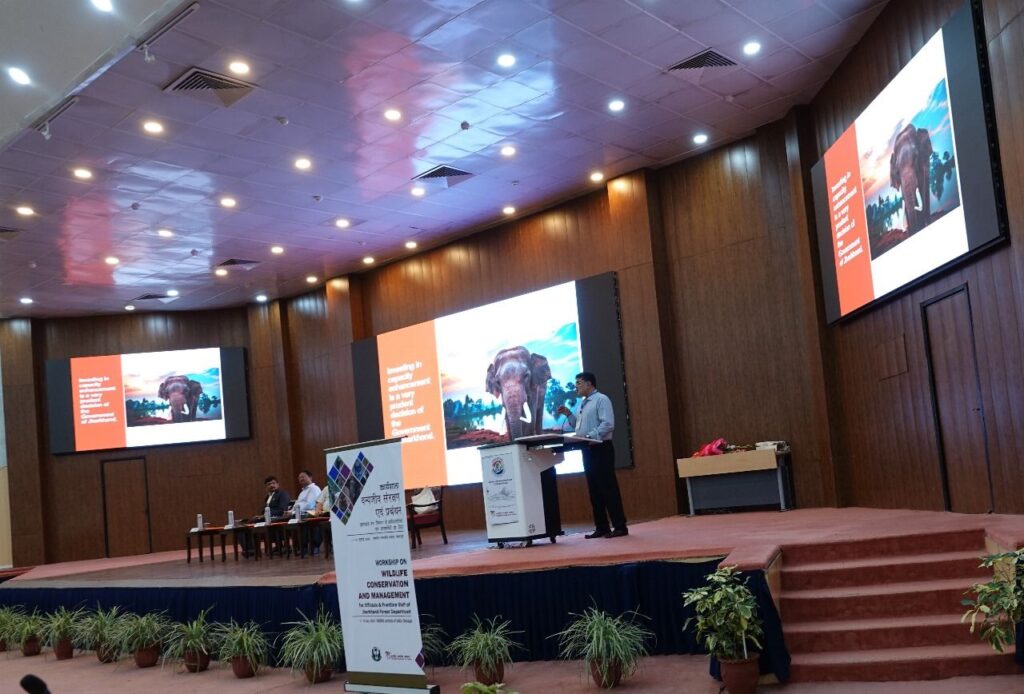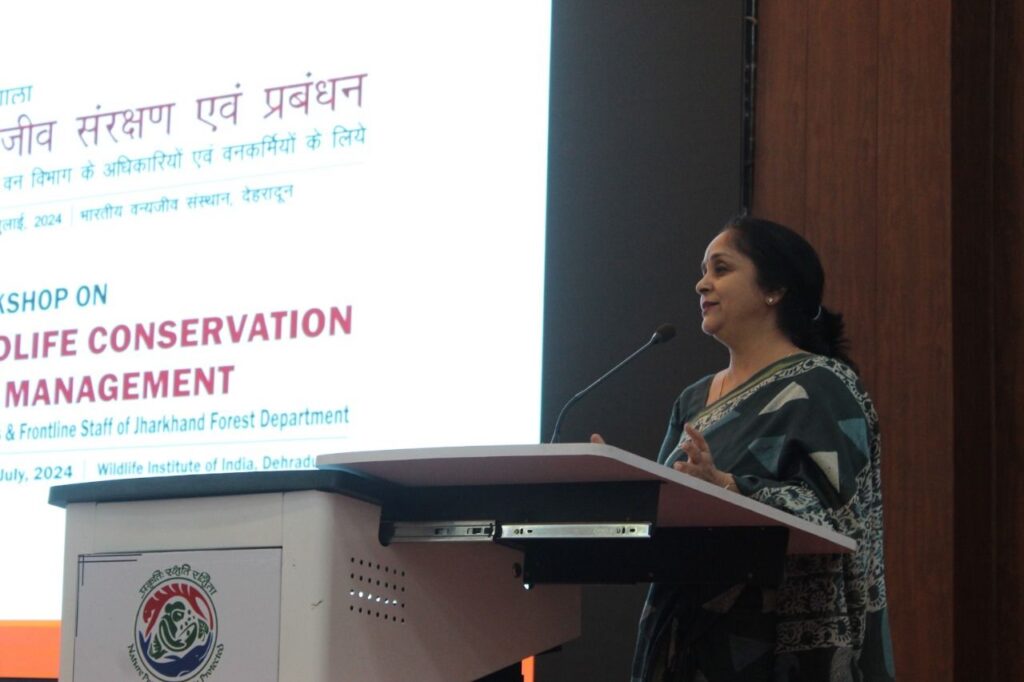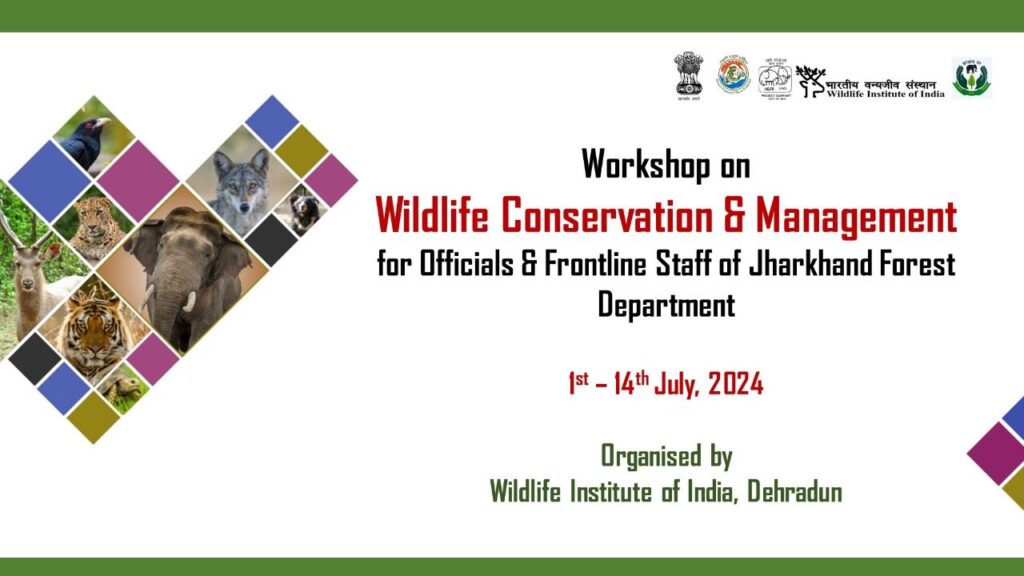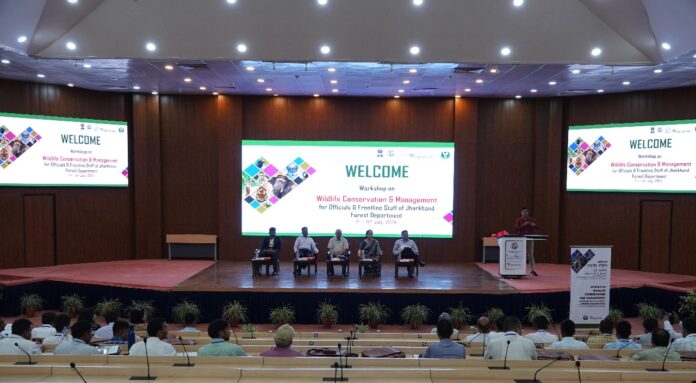Pashudhan Praharee, 1st July 2024.
Jharkhand is one of the forest-rich states in India and has a glorious history in wildlife conservation. Jharkhand has immense potential to emerge as a wildlife-rich state combating the challenges that it may face.

To achieve this a 2 week intensive capacity enhancement workshop is being held at the Wildlife Institute of India (WII), Dehradun at the behest of the Jharkhand Forest Department for their officials and the frontline staff.
The inaugural for the workshop was held on July 01, 2024. Shri Vinod Rishi, IFS, former ADG Wildlife MoEF&CC, Government of India graced the occasion as Chief Guest. His experience sharing and wisdom were motivating for the participants.

The inaugural was also attended by Dr. Ruchi Badola, Dean FWS, Dr. S. Sathyakumar, Scientist and Registrar, Dr. Parag Nigam, Head, Dept of Wildlife Health Management and Dr. C. Ramesh Scientist along with other notable dignitaries, faculty and students of Wildlife Institute of India.

9 veterinary officers and 22 forest personnel from Jharkhand are participating in the workshop. This workshop is aimed at enhancing the skills and knowledge of officials in wildlife preservation and effective management strategies.
Eminent speakers and conservation practitioners will conduct theoretical and practical sessions, emphasizing the importance of scientific rigour, sustainable practices and community involvement in wildlife protection. The workshop will include interactive sessions, case studies, and field visits to promote practical understanding.
This initiative reflects Jharkhand’s commitment to preserving its rich biodiversity and fostering a collaborative approach to wildlife conservation.

About the Wildlife Institute of India (WII)
Established in 1982, the Wildlife Institute of India is an internationally acclaimed institution offering training programs, academic courses, and advisory services in wildlife research and management. The Institute is actively engaged in research across India on biodiversity-related issues. Its idyllic campus, equipped with state-of-the-art infrastructure, fosters scholarly work and innovation in the field of wildlife conservation.


